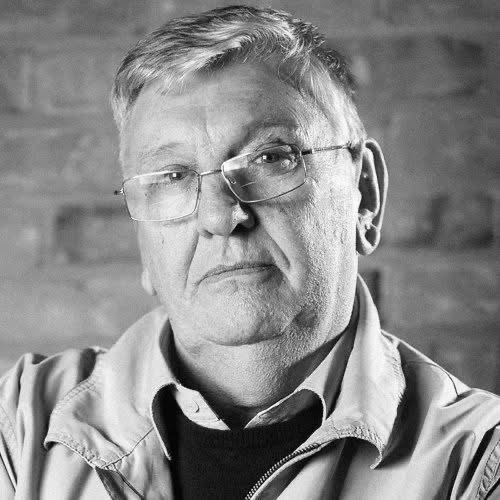
Roy Douglas Obituary
Kent, England, United Kingdom
December 12, 1907 - March 23, 2015

Roy Douglas Obituary
Dec 12, 1907 - Mar 23, 2015
Composer noted for working with William Walton and Ralph Vaughan Williams
Roy Douglas, who has died aged 107, was a composer and arranger, but was best known for the assistance he gave to Ralph Vaughan Williams and William Walton in the preparation of their works for performance and publication.
He assisted Vaughan Williams from 1947 until the composer’s death at the age of 85 in 1958. It was said of him that he “knew Vaughan Williams’s mind and, perhaps a rarer accomplishment, could read his handwriting”.
Vaughan Williams unintentionally embarrassed him by introducing him jocularly as “Mr Douglas, who writes my music for me”. Some people took this seriously, and Vaughan Williams had to explain that Douglas’s job was to make a fair copy of the score of a new work, correct “a lot of careless errors on my part” and make suggestions about the pianoforte and celesta parts where applicable – a process Vaughan Williams described as “washing the face” of the work concerned. The persistent rumour that Douglas “orchestrated” Vaughan Williams’s later works was totally false.
One work he did orchestrate was the ballet devised from Chopin’s music, Les Sylphides. Disgusted by the many poor orchestrations, he did his own in 1936. He was offered an outright fee of £10 but wisely refused, for royalties from it provided a substantial income for the rest of his life. It was taken up by most leading ballet companies. When the Royal Ballet on one occasion substituted an arrangement by Sir Malcolm Sargent, the restoration of Douglas’s version was demanded by Margot Fonteyn.
Roy Douglas was born at Tunbridge Wells, where he would live for much of his life, on December 12 1907. He began to play the piano when he was five, and at 10 was composing little piano pieces. His mother extracted a shilling a week from her meagre housekeeping money to pay for piano lessons. As a child he suffered from recurrent heart trouble and had little formal education. He never had lessons in composition, orchestration or conducting.
From the age of eight he spent hours at the piano, reading at sight everything he could find from Beethoven to ragtime. When the family moved to Folkestone in 1915, Roy played regularly in local orchestras, and in 1927 he joined Folkestone Municipal Orchestra as Mustel-organist, deputy pianist, celesta player, extra percussionist, librarian and programme-planner – all for £6 a week for 14 performances and two rehearsals.
When the local council reduced orchestral salaries, Douglas resigned and moved to Highgate with his parents and sister. He obtained engagements with the London Symphony Orchestra, and from 1933 was a full-time member as pianist, celesta player, organist, fourth percussionist and librarian. He also played in ballet seasons at the Alhambra, Coliseum and Drury Lane. He reckoned he played the piano part in Stravinsky’s Petrushka 80 times; and in the Polovtsian Dances from Borodin’s Prince Igor, he “played triangle and tambourine, both parts together, one with each hand”.
In the 1930s he was a pianist in many West End shows, including revivals of The Desert Song and The Vagabond King, and performed light music in the restaurants at the Savoy and at Frascati’s, as well as in cinemas.
Between 1937 and 1941 Douglas provided the orchestration for recordings by several famous singers when HMV, Columbia and Parlophone decided that an orchestral accompaniment was preferable to the original voice and piano. Thus he orchestrated Brahms for Elisabeth Schumann, and other composers for Gigli, Paul Robeson, Webster Booth, Dennis Noble, Peter Dawson (who insisted on his fox terrier being present at sessions) and John McCormack. The orchestra was usually conducted by Walter Goehr, father of the composer Alexander Goehr, and led by Alfredo Campoli.
At one Abbey Road session, the pianist Benno Moiseiwitsch was recording Weber’s Invitation to the Dance, in which the player’s right thumb has four times to execute a glissando up the white keys, ending on a top G. Four times Moiseiwitsch had hit the wrong note at the end, necessitating in those days a complete retake. The record producer Walter Legge fetched Douglas to stand by the piano and hit the G after Moiseiwitsch had completed the glissando – and that is how the record was issued.
The LSO played many composers’ scores for films during the Second World War, and through these engagements Douglas came to work with Walton, Alan Rawsthorne, John Ireland and Arthur Benjamin. He made an orchestral arrangement of Liszt’s Funérailles and orchestrated all Richard Addinsell’s music for eight BBC programmes and 24 films. The latter included Dangerous Moonlight (1941), which contained the famous and popular “Warsaw Concerto”.
Dangerous Moonlight was about a Polish airman who was also a concert pianist (played by Anton Walbrook). The original idea was that he should be shown playing Rachmaninoff’s second concerto, but for some reason this was abandoned (and taken up successfully in Brief Encounter).
Addinsell wanted the Warsaw Concerto to sound like Rachmaninoff, so while Douglas was working on the orchestration he surrounded himself with the miniature scores of the second and third concertos and the Rhapsody on a Theme of Paganini.
The recording sessions began in March 1941 with the young Australian pianist Noel Mewton-Wood; but the pianist for the final soundtrack was Louis Kentner, who agreed to perform only if his name was not publicised – presumably because he feared that it might be thought degrading to play for film music. But when later he heard that the gramophone recording of the soundtrack was a bestseller (three million copies), he asked for (and got) royalties.
Douglas also asked for royalties on his orchestration, but was told he had been commissioned to score the entire music for the film for £100 and that was that. He later worked out that a penny on each of the three million copies would have brought him £12,500, a huge sum at that time.
He first worked with Walton in 1940, on revision of the Violin Concerto. He also gave the composer some lessons in conducting. He performed the same function for Walton as he was later to do for Vaughan Williams, but on occasions helped Walton by orchestrating a few bars of film music when the composer fell behind a deadline.
One example of this was in the music for Gabriel Pascal’s film of Shaw’s Major Barbara. Douglas also “washed the face” of Walton’s film scores for The First of the Few and Henry V and later of the operas Troilus and Cressida and The Bear and the later orchestral works. During rehearsals for Troilus and Cressida at Covent Garden, Douglas discovered 238 mistakes in the printed parts.
Douglas’s first encounter with Vaughan Williams was with some of his wartime film music when he copied out the orchestral parts of Coastal Command because the manuscript score was deemed “unreadable”. In 1944 the composer asked him to make a reduced score of his Thanksgiving for Victory to enable it to be performed by societies which could not afford the original version. Then, in 1947, Vaughan Williams wrote to him to say he had “been foolish enough to write another symphony (No 6). Could you undertake to vet and then copy the score?”
Thus began an association which brought Douglas close friendship with Vaughan Williams and his wife, Ursula. He worked on Sinfonia Antartica, the Eighth and Ninth Symphonies, the opera The Pilgrim’s Progress and many other compositions. He also orchestrated six of the nine Songs of Travel after Vaughan Williams’s death.
Douglas wrote a fascinating account of their collaboration, Working with RVW, in 1972 and expanded it in 1988 as Working with Vaughan Williams. It includes many of the composer’s letters to him. After Vaughan Williams’s death, Douglas went through all his manuscripts and was of invaluable assistance to his biographer. He continued to vet the publication of Vaughan Williams scores until he was in his eighties.
Douglas was a founder member of the Committee (now Society) for the Promotion of New Music in 1943, and an early committee member of the Composers’ Guild of Great Britain .
He moved back to Tunbridge Wells in 1939, and after the war joined the town’s dramatic society, appearing as Oberon, Shylock, Touchstone and Dr Chasuble. In 1950 he played the piano part in Falla’s Love the Magician with the Royal Tunbridge Wells Symphony Orchestra and continued to play with it, and occasionally to conduct it, for many years; in 1985 he was elected president.
His compositions include an oboe quartet, Four Old Scots Tunes for strings and an Elegy for strings. He wrote music for 32 radio programmes and six documentary films.
Douglas was a remarkable all-round musician. His sardonic sense of humour made him a splendid raconteur, and he had a hatred of sloppy English. Perhaps surprisingly, his favourite recreation was motorcycling: he travelled throughout England on a Triumph 200cc Tiger Cub which he bought in 1958, replacing it with a Triumph 350cc on which he covered more than 55,000 miles until his doctor ordered him to stop after his 80th birthday.
Roy Douglas was unmarried, sharing his home with his sister Doris until her death in 1997.
CREDIT: TELEGRAPH UK




Guestbook